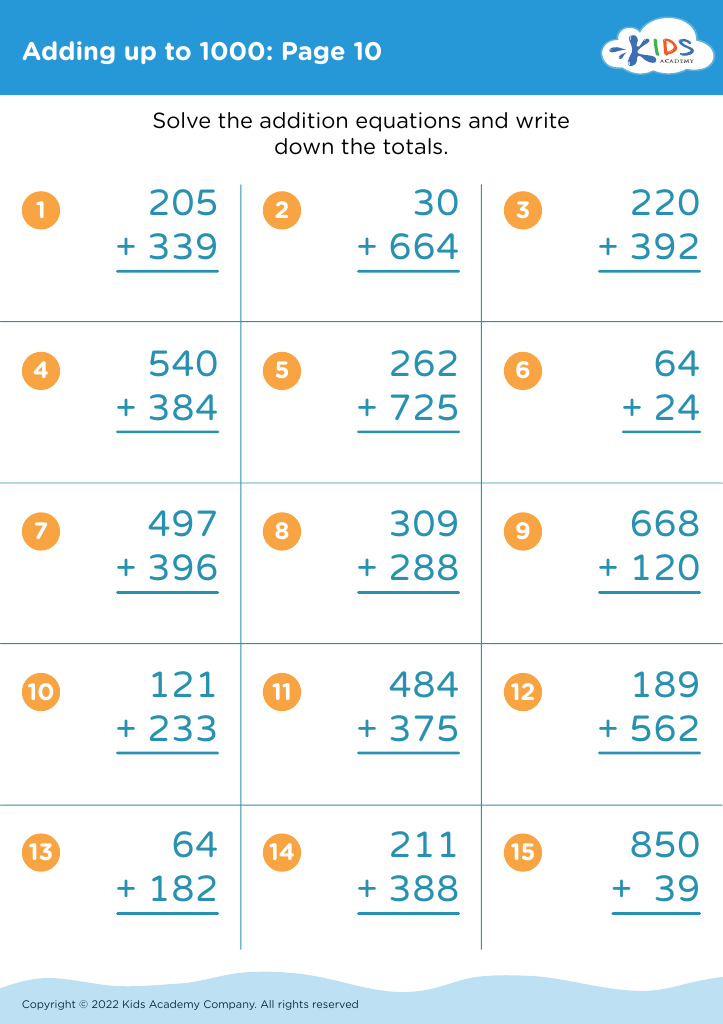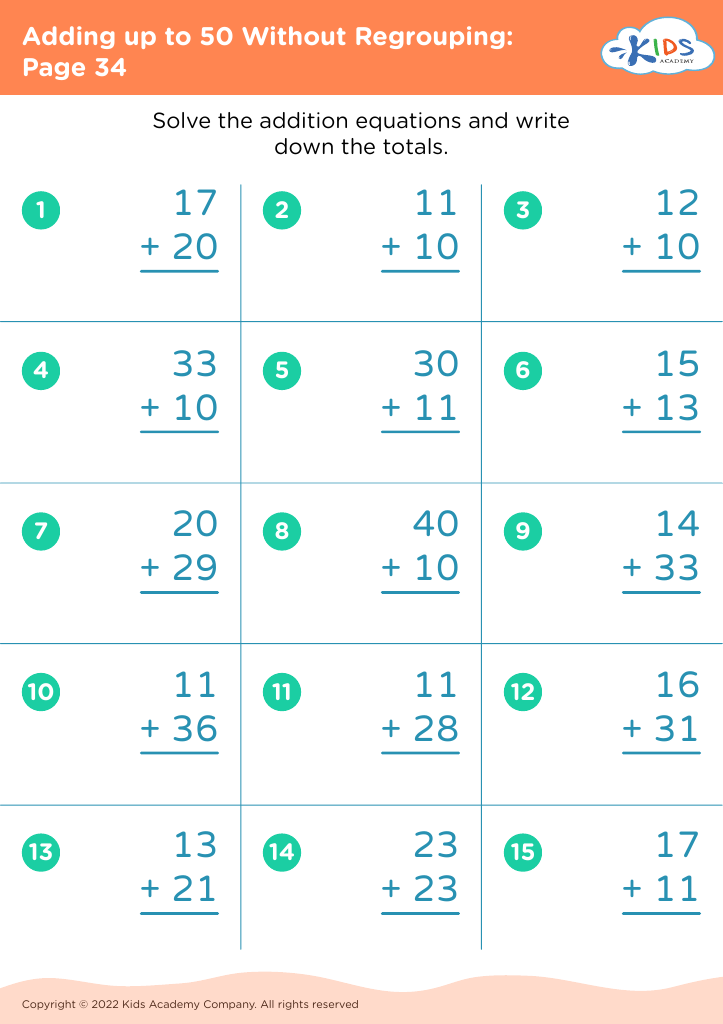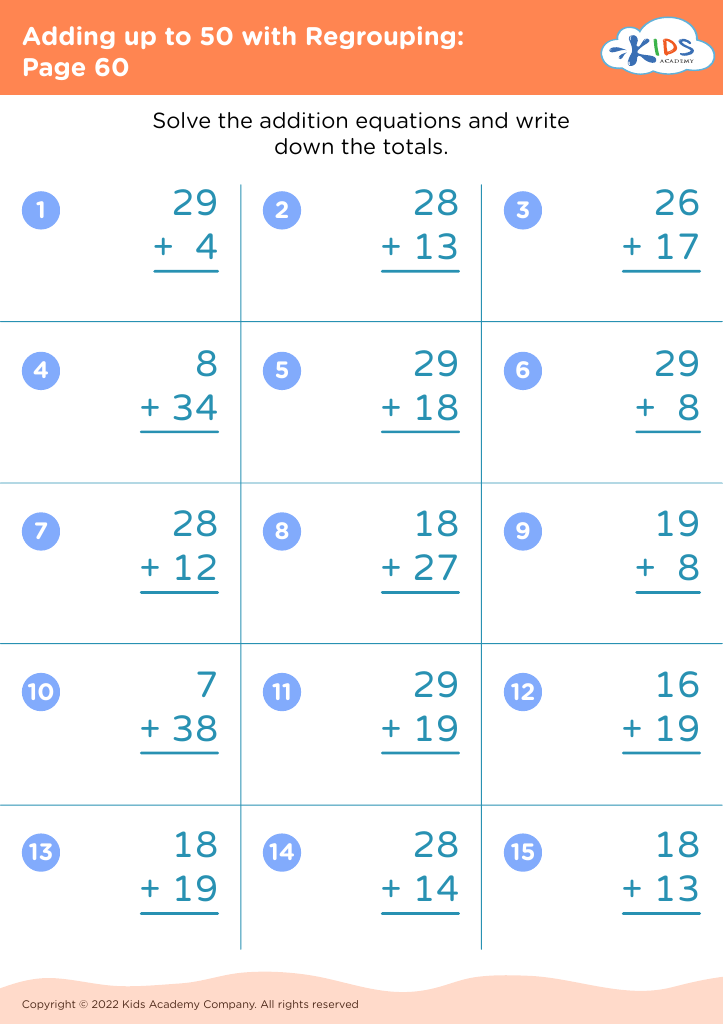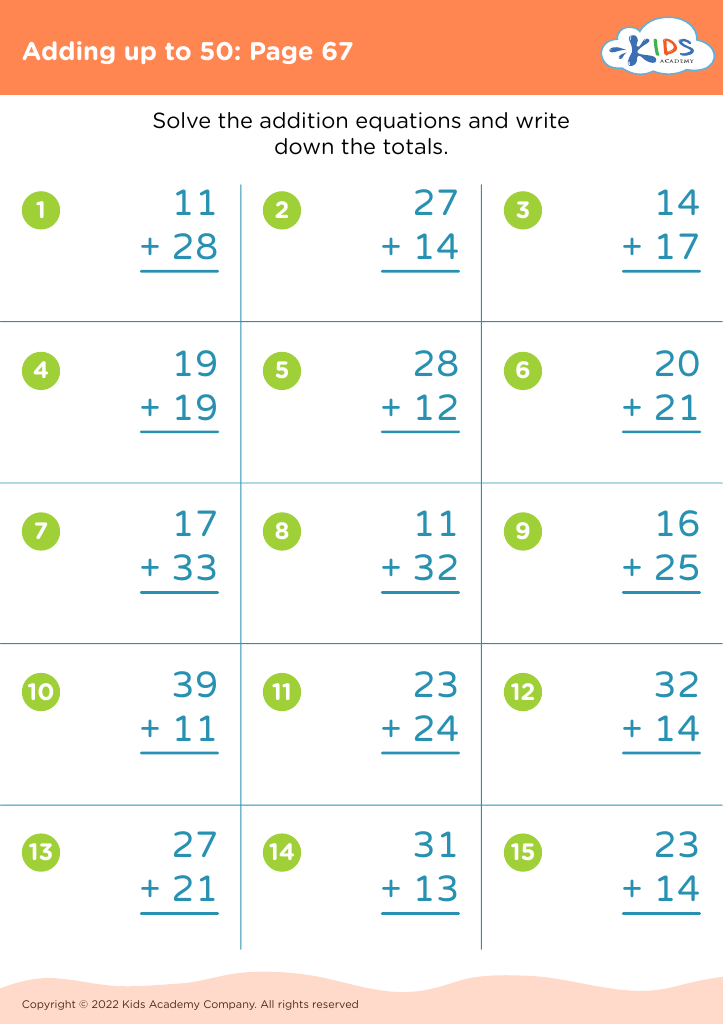Comparing Fractions Addition & Subtraction Worksheets for Ages 7-9
86 filtered results
-
From - To
Discover an engaging collection of "Comparing Fractions Addition & Subtraction Worksheets" tailored for children aged 7-9. These printable worksheets from Kids Academy provide comprehensive exercises to enhance fraction comprehension, addition, and subtraction skills. Designed by education experts, each activity combines fun with learning, allowing children to compare fractions, solve step-by-step problems, and develop a strong mathematical foundation. Perfect for classroom use or at-home practice, these worksheets are an excellent resource to support your child's journey in mastering fractions. Download now to give your child the tools they need for mathematical success!
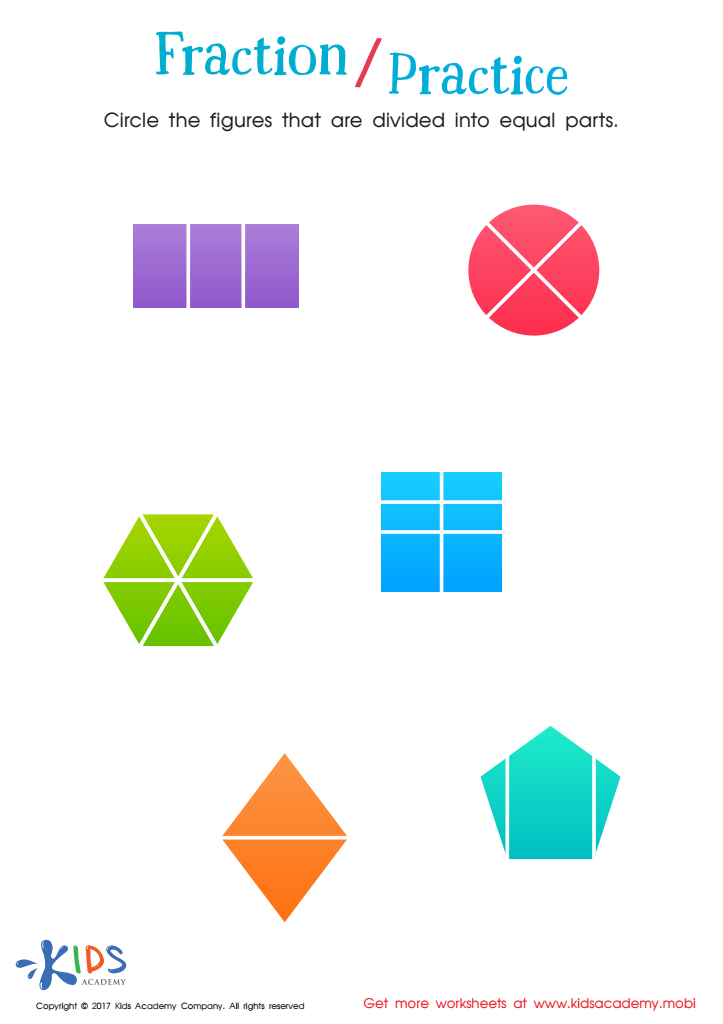

Fractions: Shapes Worksheet
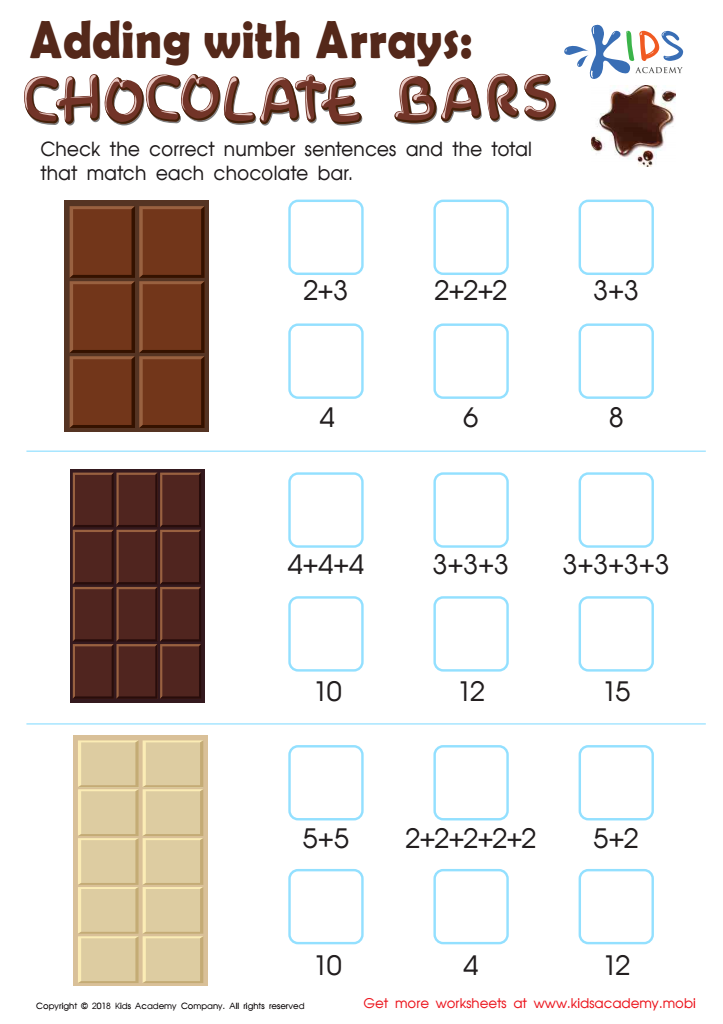

Adding with Arrays: Chocolate Bars Worksheet
Understanding comparing fractions, addition, and subtraction at an early age (ages 7-9) is crucial for a child's mathematical development. At this formative stage, students transition from concrete to more abstract thinking, making foundational concepts like fractions pivotal. Firstly, grasping how to compare fractions and perform basic operations (addition and subtraction) builds essential skills for higher-level math topics and real-world problem-solving. For instance, concepts of fractions are foundational for understanding ratios, percentages, and algebra.
Additionally, mastering these topics enhances cognitive development. Children learn to reason logically, approach problems systematically, and develop perseverance through challenging tasks. Early proficiency in math also boosts confidence and reduces math anxiety, fostering a positive attitude towards learning.
From a practical standpoint, fractions are everywhere—cooking, telling time, or dividing a pizza. Familiarity with comparing and operating on fractions equips children with crucial life skills. Educators and parents play a critical role by providing engaging learning experiences, helping children see the practical relevance, and offering consistent practice.
Overall, emphasizing comparing fractions, addition, and subtraction in early education sets a strong foundation for academic success and everyday competence, benefiting children well into their future studies and daily lives.
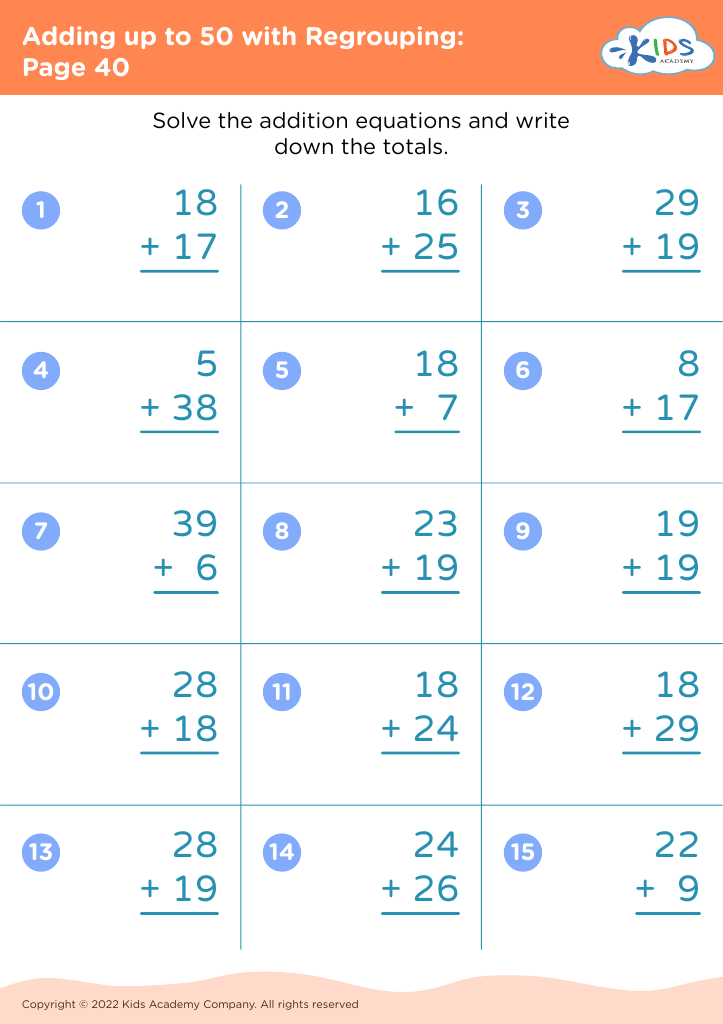
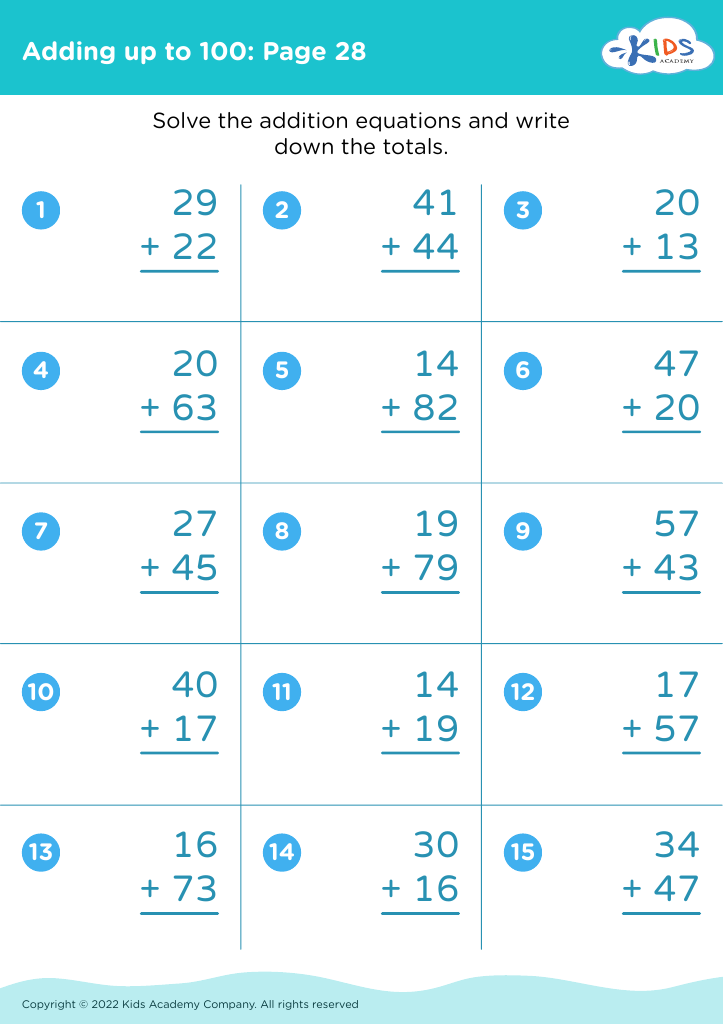
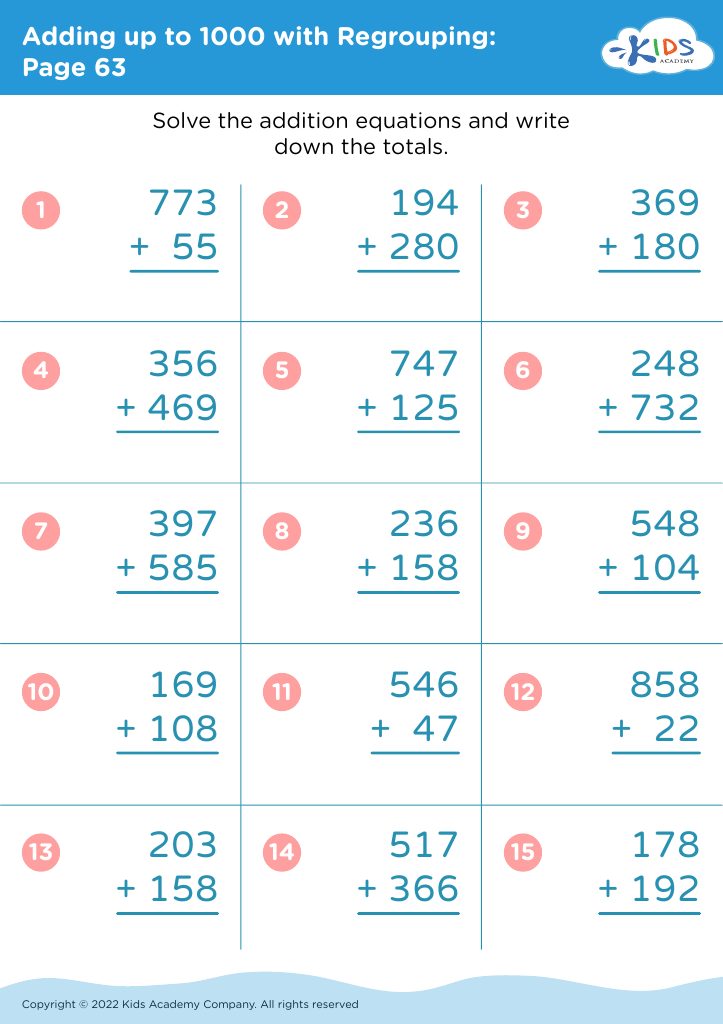
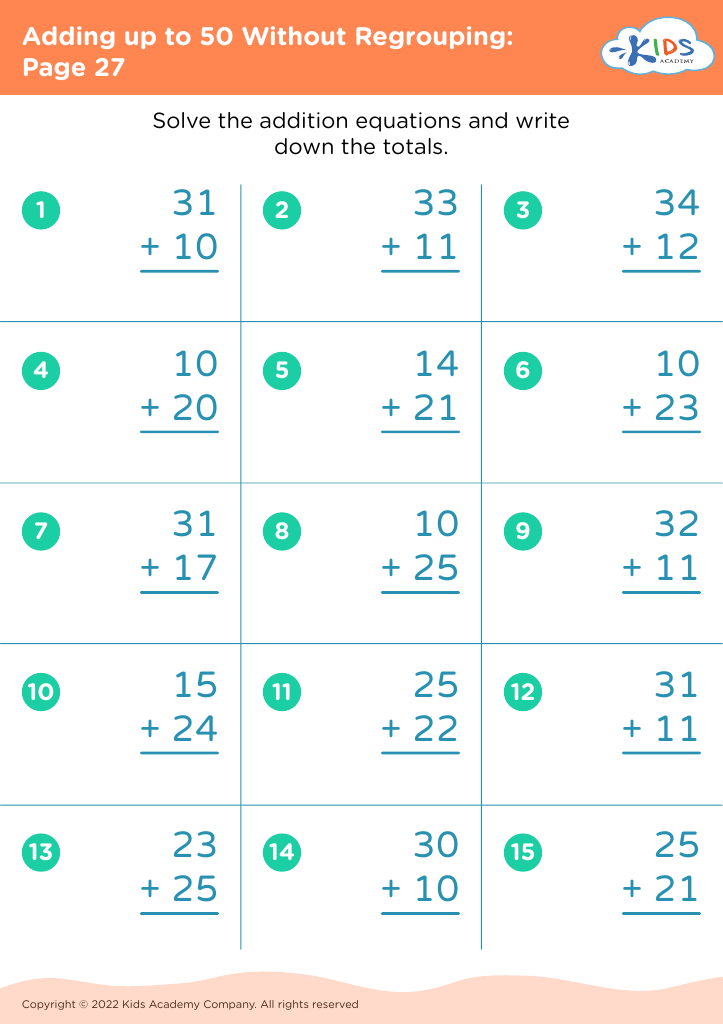


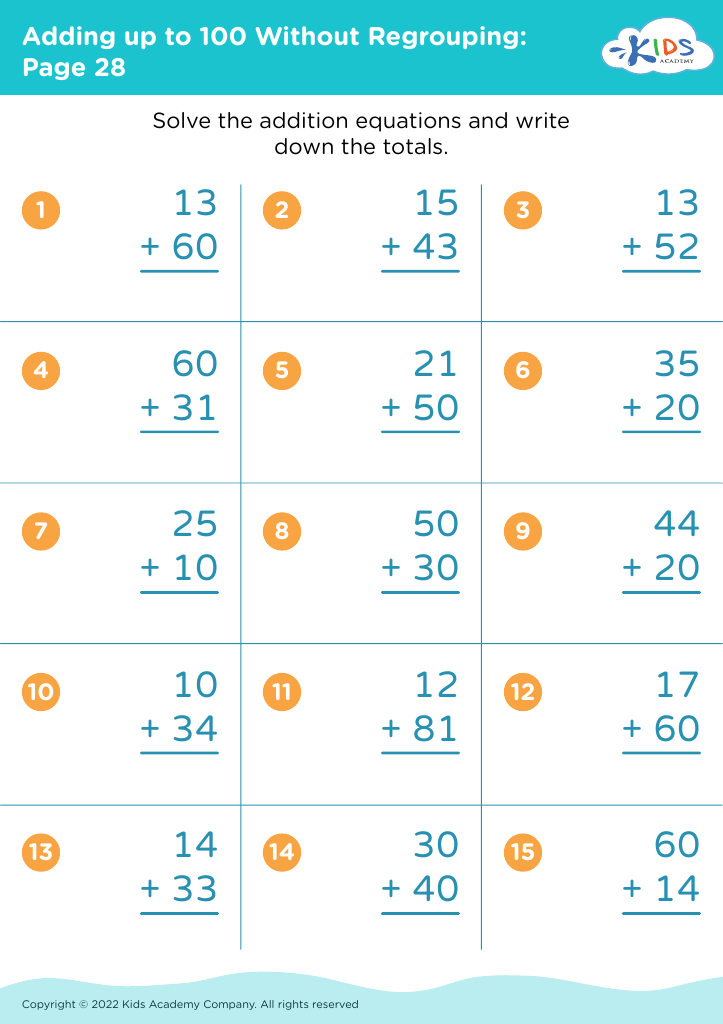

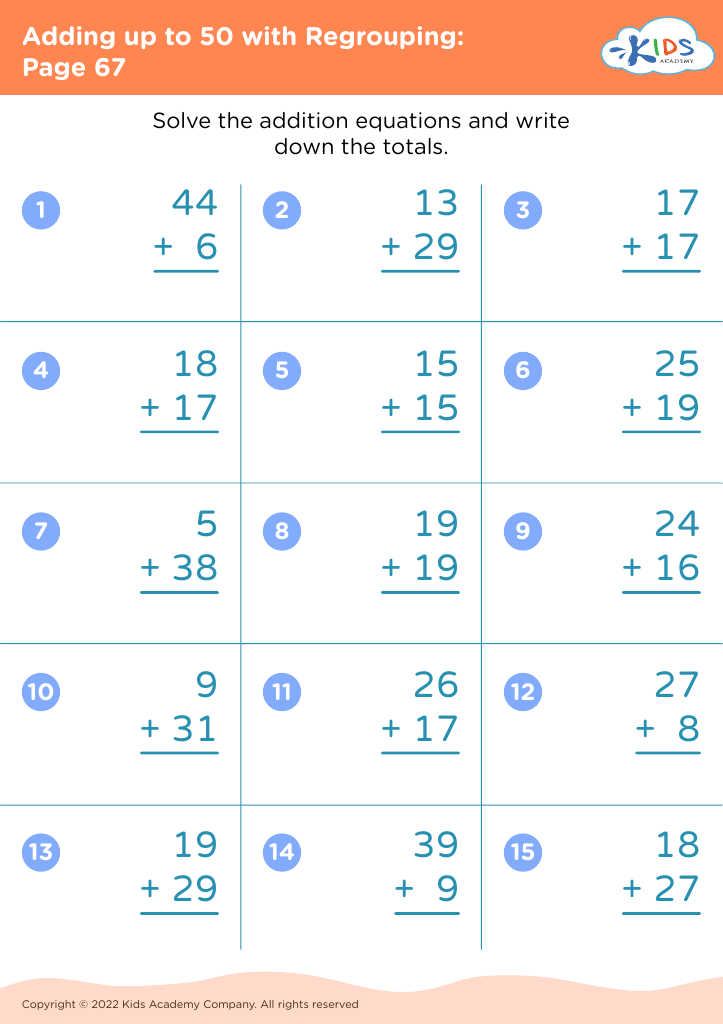

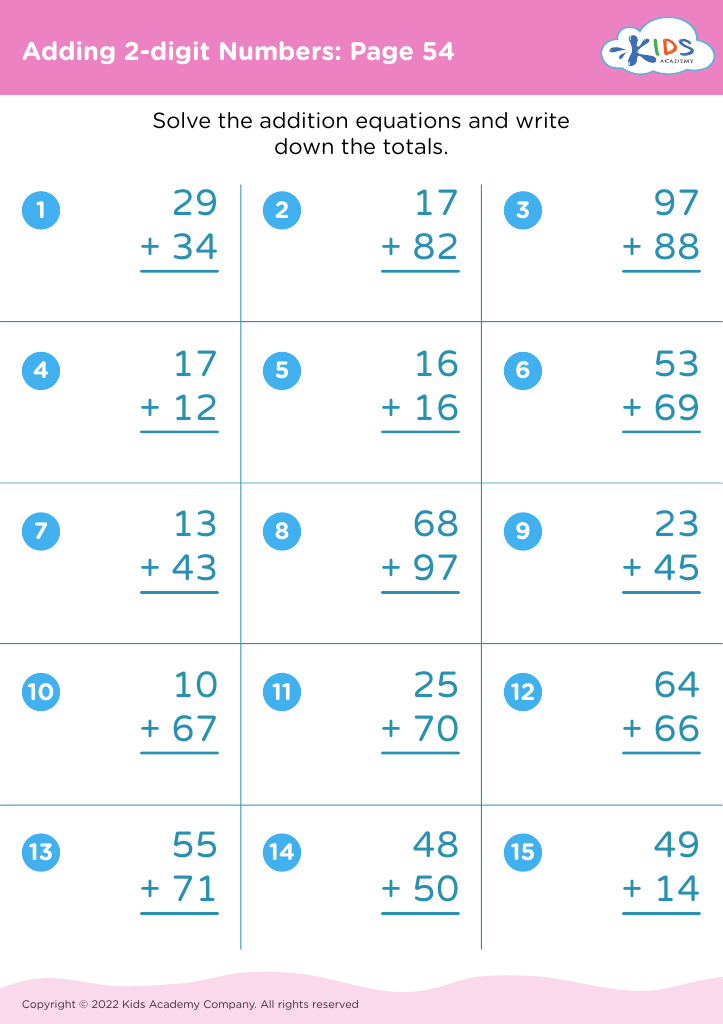
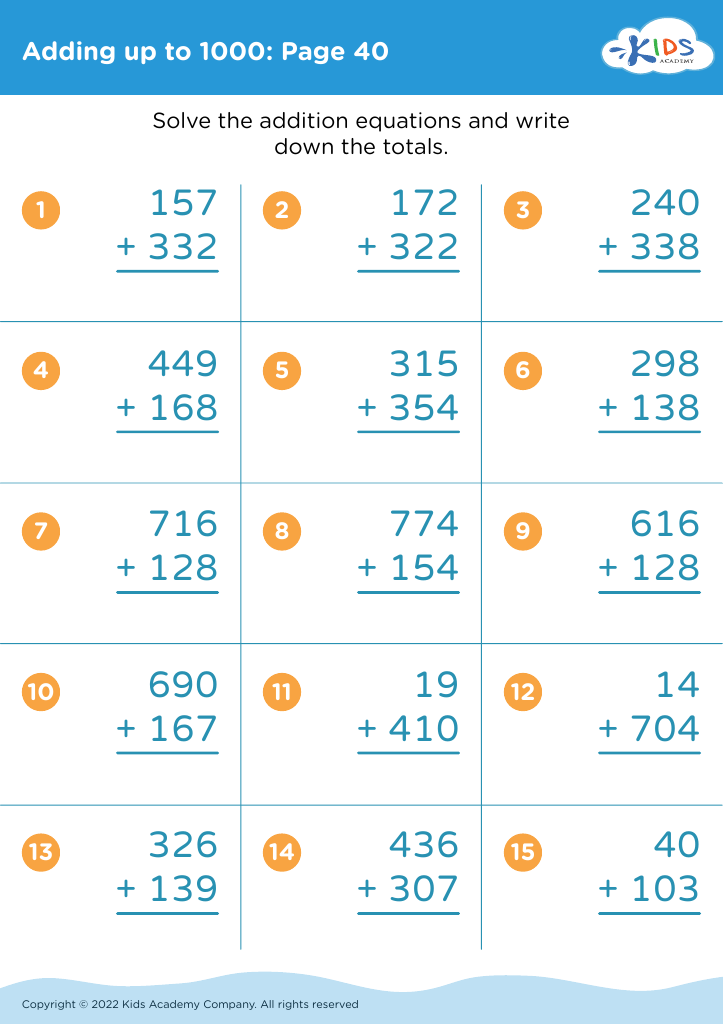


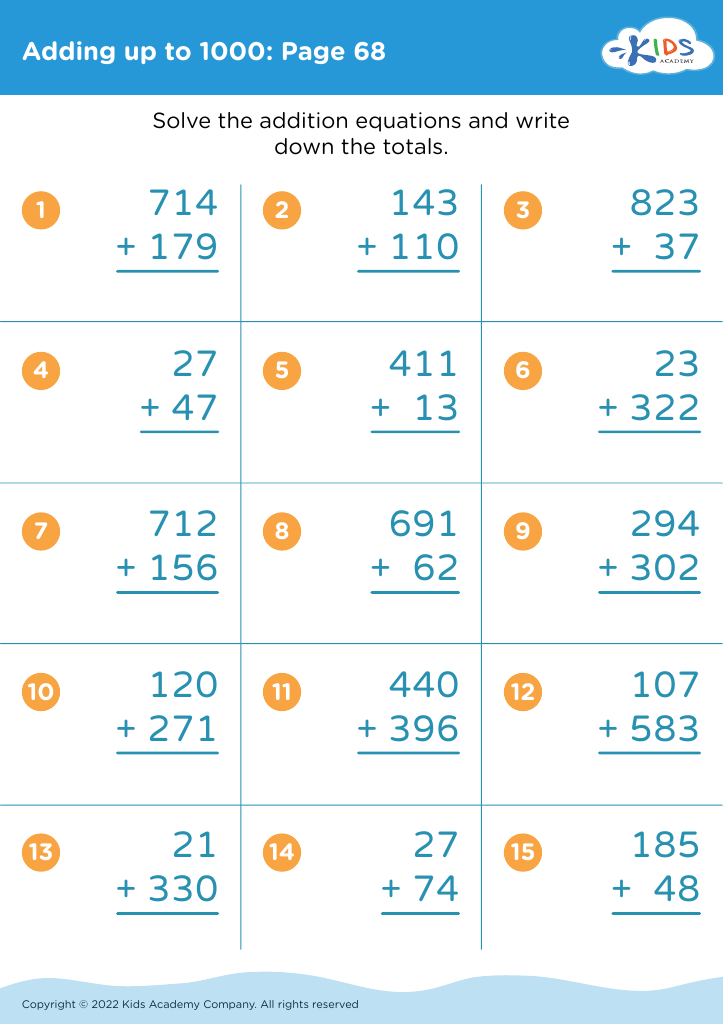
 Assign to My Students
Assign to My Students
